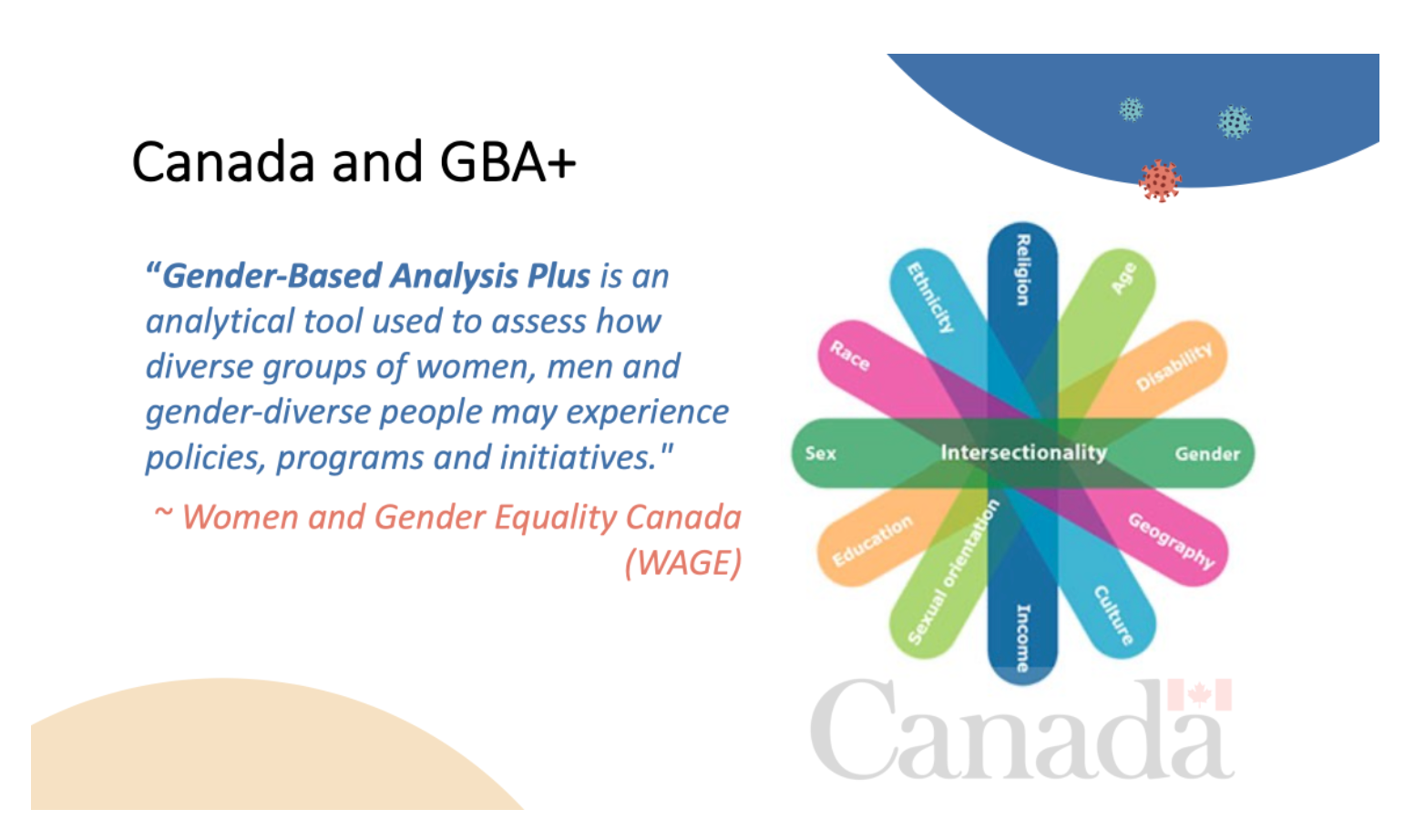Spotlight on CGSHE trainee presentation by Alice Murage at CGSHE Research In Progress Seminar
The COVID-19 pandemic disproportionately affected women but the Canadian and British Columbia governments largely failed in providing a gender-sensitive response. This is among the findings of a new study from the Gender & COVID-19 Project presented by CGSHE researcher and Simon Fraser University fellow Alice Murage at CGSHE’s monthly Research In Progress Seminar.
According to Murage, the study focused on the governments of Canada and BC because of their explicit gender equity commitments. In 2019, the BC government pledged to reflect gender equity in its budgets, policies and programs [source]. The federal government’s Gender Based Analysis Plus (GBA+) provides an intersectional method to assess systemic inequalities along race, class and gender lines to understand how women, men and gender diverse people experience government policies, programs, and initiatives [source]. “Our research shows that the governments did not adequately mitigate harms to women – harms like gender-based violence, economic insecurity and unpaid caregiving,” explained Murage.
“Governments must confront gender norms that force women out of the labour market during crisis and find ways to ease the triple burden on women, including closing the gender pay gap and ensuring access to child care, justice services and financial and mental wellness support.”
The analysis used BC as a case study from March to July 2020 to evaluate the secondary impact of COVID-19, Murage continued, noting that GBA+ was narrowly applied in the COVID-19 response. “Only two socio-economic policies were gender sensitive and both addressed gender-based violence through funding shelters, sexual assault centres and virtual mental health services.”
The overt focus on gender-based violence positioned women as victims rather than highlighting their role in sustaining the COVID-19 response through their unpaid care work, Murage said. Further, the financial relief offered by the government did not always meet needs nor ease the triple burden shouldered primarily by women: paid work; unpaid work (childcare, home schooling, increase care needs for elderly parents); and domestic and community management. “This triple burden comes at a cost,” Murage said, pointing out that women left the workforce to provide child care, lost paid work, or experienced reduce hours of paid work more than their male counterparts. “This caused other problems, including poor mental health, residual stress, anxiety and ‘mom guilt.’”
As a result of these findings, the study published a number of recommendations. “We need continued application of GBA+ at the federal level and an extension to the provincial level,” commented Murage, adding that it is critical to not only recognize gendered risks in the policy process but also indicate if such risks have been addressed. “Governments must confront gender norms that force women out of the labour market during crisis and find ways to ease the triple burden on women, including closing the gender pay gap and ensuring access to child care, justice services and financial and mental wellness support.”
The study is part of the Gender & COVID-19 Project, a large global health collaboration co-led by CGSHE faculty member and SFU researcher Dr. Julia Smith and colleagues. The project aims to identify the gendered effects of the global pandemic while illuminating policy gaps and providing guidelines for decision makers.
Watch Alice Murage’s presentation at CGSHE Research In Progress Seminar here.
CGSHE Research In Progress Seminar is a monthly virtual meeting with over 50 CGSHE faculty and UBC/SFU graduate students and postdoctoral fellows presenting works in progress on gender equity and sexual health research to colleagues. The CGSHE RIP Seminar seeks to break down silos of research across disciplines, faculties and schools to build synergies and informal collaborations w hile creating networking space for trainees to present their research to a range of faculty and fellow trainees.
Originally published at https://cgshe.ca/blog/2021/07/gender-in-the-age-of-pandemic-mitigating-the-triple-burden/






